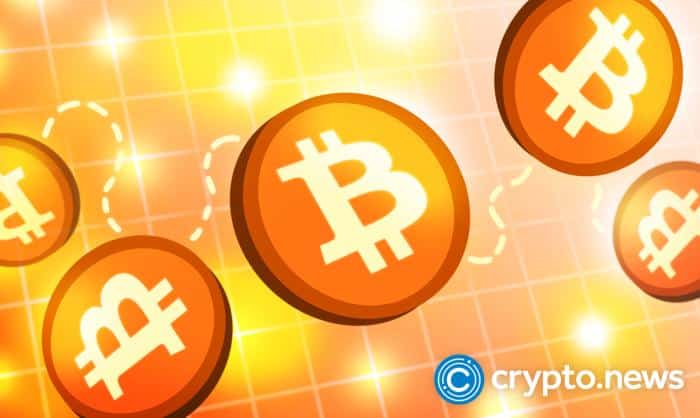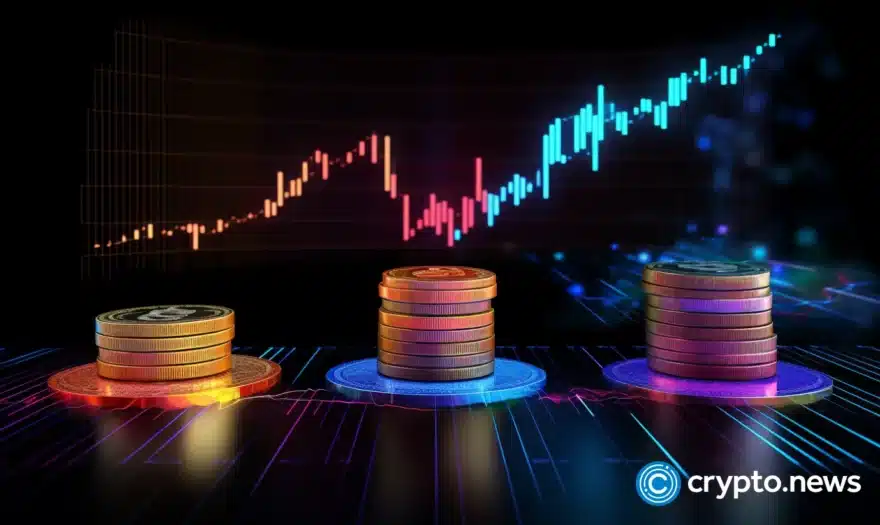Bitcoin 101: A Quick & Easy Guide for Complete Beginners

If you’re new to crypto, you might be feeling a little bit overwhelmed. You’ve heard about Bitcoin, Ethereum, and all the other cryptocurrencies out there — and now you want to get your hands on them. But how do you even begin? The best place to start is with Bitcoin. Read on to learn the basics of the world’s leading cryptocurrency in this Bitcoin 101.
Table of Contents
What Is Bitcoin?
Bitcoin is an open monetary system that enables anyone in the world with an internet connection to store, send, and receive money in digital form.
Bitcoin was invented by Satoshi Nakamoto (a pseudonym), who announced its existence in 2008 in a whitepaper sent to a cypherpunk mailing list. The idea behind Bitcoin is to create an alternative currency that isn’t controlled by any central authority—like banks or governments—and isn’t based on physical assets like gold or silver.
Probably the most important thing to know about bitcoin is that it’s not controlled by any central authority. No single entity can decide what happens to the currency, which in turn means that no one can use it as a tool for political oppression or censorship. That also means there aren’t any banks involved with bitcoin transactions. Instead, transactions are processed between users on a peer-to-peer network. Every bitcoin owner has a bitcoin wallet where they can store, send, and receive bitcoin.
What’s more, Bitcoin has a finite supply, making it a scarce asset. Bitcoin’s limited supply, combined with a disinflationary, hard-coded monetary policy, has been met with increasing demand since the cryptocurrency launched in 2009. As a result, the price of bitcoin has steadily increased (albeit amid high volatility) in the past 13 years.
Who Created Bitcoin?
Satoshi Nakamoto is the name used by the unknown person or persons who designed bitcoin and created its original reference implementation. The Bitcoin network launched in January 2009. Satoshi was active in the development of Bitcoin up until December 2010, when he handed the network alert key and control of the code repository over to Gavin Andresen. He disappeared in April 2011 after sending his last email to Bitcoin developers.
Satoshi’s main motivation for creating Bitcoin was to enable a worldwide payment system that was not controlled by any central authority or government agency. He foresaw a system that would allow people to take control of their financial transactions and transfer money without having to rely on banks or other third parties.
How Does Bitcoin Work?
Bitcoin is a decentralized currency, which means that it’s not controlled by any one person or entity. Instead of relying on banks to verify transactions, Bitcoin uses peer-to-peer technology to verify transactions using the help of a blockchain.
The blockchain is a public ledger that records all bitcoin transactions ever made in chronological order. Every transaction is verified by multiple nodes before being added to the blockchain. This prevents fraud and ensures that no bitcoin can be spent more than once.
The SHA-256 hashing algorithm is used to secure Bitcoin transactions. It is very difficult for hackers to break into networks with this type of security setup (and there haven’t been any successful hacks yet). The SHA-256 hashing algorithm uses data from past block hashes as input to create the next block.
What Is Bitcoin Mining?
Bitcoin mining is the process of processing and adding transactions to the blockchain, the public ledger of all Bitcoin transactions. Miners are rewarded with Bitcoin for their work.
To mine Bitcoin, miners need to run special hardware that solves complex mathematical problems. When a problem is solved, a new block is added to the blockchain, and the miner is rewarded with a certain amount of bitcoin. The reward for doing so is currently 6.25 bitcoin, which is around $120,000 at today’s price.
The difficulty of the problems that miners need to solve changes over time. This mining difficulty is recalculated every 2,016 blocks to ensure that it takes ten minutes (on average) to add a new block to the blockchain. The difficulty is so important because it ensures that blocks are added to the blockchain at regular intervals, even as more miners join the network. If the difficulty remained the same, it would take less time to add new blocks as new miners participate in the network.
Proof of Work mining is an important part of the Bitcoin network. It helps to keep the network secure and ensures that all transactions are properly verified.
The number of bitcoin that can be mined is capped at 21 million, which is expected to be reached by the year 2140. The amount of bitcoin available to mine decreases by 50% every four years in a process called ‘halving.’ The next Bitcoin halving will happen in 2024. Note that it becomes more difficult to mine as more miners join the network.
Who Controls the Bitcoin Network?
The Bitcoin network is decentralized. No central authority controls the network. Instead, the network is controlled by all of the users who participate in it.
Each user running a Bitcoin node has a copy of the Bitcoin blockchain, which contains all of the information about all of the transactions that have ever been made. When a new transaction is made, it is broadcast to all of the users on the network. Bitcoin node runners then verify that the transactions are correct. Miners are then rewarded with bitcoin for processing transactions and adding them to the blockchain.
Because there is no central authority who controls the Bitcoin network, it is very difficult for anyone to manipulate or cheat the system.
Why Do People Call Bitcoin ‘Digital Gold’?
The term “digital gold” was first used to describe bitcoin in 2013. People call bitcoin ‘digital gold’ because it is a valuable asset with a finite supply. Just like physical gold, bitcoin is a scarce resource whose value is based on this rarity rather than practical uses. Moreover, like gold, bitcoin requires effort to mine.
Bitcoin also has many characteristics that make it similar to gold, such as its durability, portability, and divisibility. While gold has been used as a form of currency for centuries, bitcoin is still relatively new. However, it is rapidly gaining popularity as a form of digital currency. Bitcoin is often seen as a more convenient and efficient alternative to gold and even traditional currencies.
Is Bitcoin a Good Investment?
The short answer is, probably yes.
Bitcoin can be a great asset to diversify your portfolio and act as a hedge against inflation. It also offers some great benefits in terms of privacy and anonymity—a feature that many users appreciate as they desire more control over their personal information online.
Bitcoin can also be considered a good investment because it is scarce, durable, portable, and divisible – like gold – but comes with low transaction fees, making it superior to the precious metal.
However, there are also risks associated with investing in bitcoin. For example, the price of bitcoin is volatile and has been known to fluctuate rapidly. Also, you need to be careful about how you store your bitcoin. If you lose your private key or forget your password, you could lose all of your bitcoin. There have been countless cases of people losing their bitcoin because they didn’t take proper precautions to protect their wallets.
Lastly, there are other unforeseen risks associated with investing in bitcoin. For example, the Chinese government recently cracked down on Bitcoin exchanges, which caused the price of bitcoin to drop suddenly. So regulatory risk is also something to keep an eye on.
Overall, you need to weigh the potential risks and rewards of investing in bitcoin before making an investment. Also, make sure you do your own research so that you understand what you are getting yourself into should you decide to invest in the digital currency.
The Takeaway
Bitcoin is a fascinating technology that the potential to transform the global monetary system. But it’s still early days for this technology – so remember to do your research before investing in Bitcoin to make sure you are comfortable with the risks involved. Also, it’s important to learn how to securely buy and store bitcoin to ensure you don’t lose access to your coins.
FAQs
How Much Bitcoin Should a Beginner Buy?
Most approved cryptocurrency exchanges or brokers accept investments of as low as $10. You should probably start small to have a better understanding of what it means to be a bitcoin investor.
How Long Does It Take To Make Money on Bitcoin?
It’s impossible to predict how long it will take you to make money on your bitcoin investments. Also, there is no certainty that you will. Every investment carries risk. That includes bitcoin.
Can You Turn Bitcoin Into Us Dollars?
Yes. If you wish to convert bitcoin to dollars, you can use a crypto exchange or a bitcoin broker to sell your bitcoin for fiat currency.















